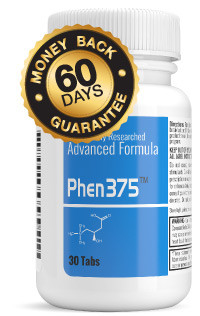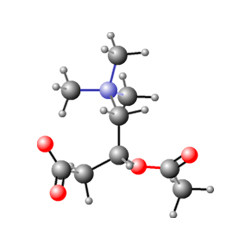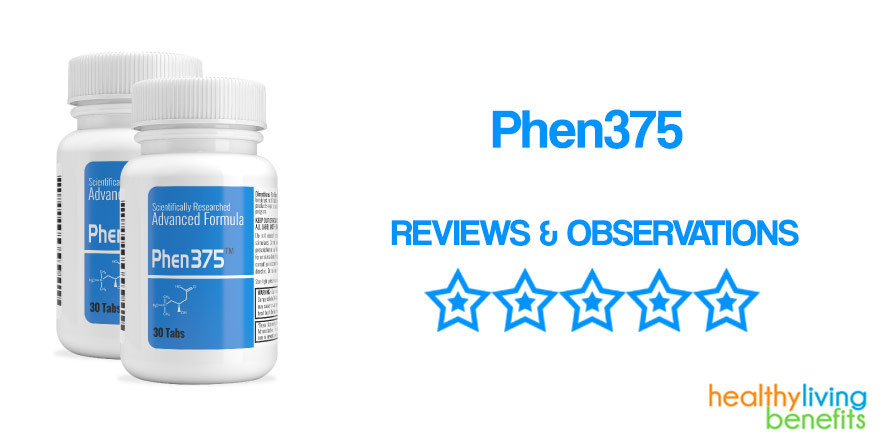Tampering with the human metabolism in order to achieve the desired shape is an appealing proposition, even for individuals with an adequate weight. It can be perceived as one more manifestation of mankind’s dominion over nature, “human nature” this time. Maybe this is the reason why weight loss dietary supplements are so popular, aside from contemporary culture of attractiveness. Yet, the supplements’ very status (from both a medical and commercial point of view) are shrouded in uncertainty.
In this review, we will try to dispel some of the uncertainty surrounding “Phen375”, a supplement designed in the wake of the legal banishment of phentermine, a popular weight loss drug, which proved to have serious side effects but, considering that it was practically an amphetamine, surprise shouldn’t have occurred at its inclusion in the controlled substances category. Based on the conclusions we will draw as to the credibility of the company manufacturing the supplement, the legitimacy of the claimed effects, and relevant existing reviews from other historically objective reviewers, we will provide you with an unbiased advice on whether you should include “Phen375” in your weight loss action plan.
Phen375 – Official Presentations
The contextual history of this supplement actually begins way back in 1959, when phentermine, a drug prescribed for short-term use and short-term weight loss hit the market. Most people nowadays are familiar with the widely practiced abuse of prescription drugs characteristic of that era.
Phentermine has traits that make it similar to amphetamine. In the present day is a controlled substance, only to be used in cases of severe obesity for no more than 12 weeks at a time, due to its likely addictive nature. Although its side effects in the short run are negligible, they nonetheless exist and a prolonged use may lead to various afflictions of the heart, lungs, stomach, and the central nervous system. The drug was available over the counter for almost forty years, finally being banned in 1997 and, naturally, it had acquired a huge popularity over that time for its efficiency as an appetite suppressant and energy booster. Nevertheless, the aforementioned risks sound awful enough, with the interdiction being entirely justified.
In the wake of that change, dietary supplements’ manufacturers rose up to fill the void in the weight loss products segment. Since then, “phen”- seems to be on its way to becoming an established English language prefix, with Phen375 claiming similar slimming benefits since 2009. With the aid of high-quality ingredients and with no prescription needed. As trivia information, we should also mention that the usual prescribed dosage of phentermine is 37.5 mg.
Phen375 claims to deliver the speediest weight loss in the business, and its popularity and demand for in many regions of the world (though we will only discuss the US, Australia, and Europe) backs up that claim. It may well have been a stand-out product when it was first launched – due to it being both a fat burner and an appetite suppressant – yet in the landscape of 2017, it is merely one member of an extensive pack.
Phen375 Claims and Testimonials
The first thing that catches a reviewer’s eye when exploring the official website is the overuse of testimonials, one can simply not escape them, a practice whose best days are certainly behind us. Their presence hinders every page of the website, and there is a dedicated “testimonials” page to boot. This amounts to conspicuous overselling of the product. They could just have started with the 60-day money-back guarantee and assurances of domestic manufacturing in FDA-approved facilities, like most supplement manufacturers and marketers do.  The second noteworthy feature in the case of Phen375 involves the supplement’s recipe – the American version features eight ingredients (calcium carbonate, chromium, L-carnitine, caffeine powder, capsicum, orchid extract, citrus extract, and Indian coleus root extract), while the European supplement can do without the last two. This aspect leaves a big question mark over role these two ingredients have in the overall mixture, in addition to why have they been left out, while declaring no change in the product’s effects. Furthermore, the role of the two contentious ingredients is never officially elaborated on, which sparks further unresolved curiosity on the part of the reviewer. Besides the active ingredients, Phen375 also comes with its own diet plan.
The second noteworthy feature in the case of Phen375 involves the supplement’s recipe – the American version features eight ingredients (calcium carbonate, chromium, L-carnitine, caffeine powder, capsicum, orchid extract, citrus extract, and Indian coleus root extract), while the European supplement can do without the last two. This aspect leaves a big question mark over role these two ingredients have in the overall mixture, in addition to why have they been left out, while declaring no change in the product’s effects. Furthermore, the role of the two contentious ingredients is never officially elaborated on, which sparks further unresolved curiosity on the part of the reviewer. Besides the active ingredients, Phen375 also comes with its own diet plan.
The purported weight loss sequence seems straightforward enough. It starts from the universally acknowledged truth that the established three-meals-a-day is still the way to go and one should never skip meals, but rather watch the meal’s content. The active ingredients in the supplement start the process of burning down the existing fat in the body. With a careful intake of water, the toxins which are unleashed from said fat will be flushed out gradually. The credibility of this plan is enhanced by the fact that it does not totally remove exercise from the weight loss equation, as other such supplements do. All the claims discussed so far have a decent degree of plausibility, but waters do become murky when turning our attention to what should be the manufacturing company.
Although the official website clearly advertises that the product is made in the USA, the “Contact Us” information lists only a Distribution Center located in Dallas, Texas. The terms of use, privacy and return policies do not shed more light on what or who actually makes and sells the supplement. The credibility is further dented when considering the affiliate program, which translates into a suffocating presence across the web, with the same testimonial-inspired promoting techniques.
 Leafing through dozens of testimonials and “objective reviews”, we have encountered what can only be deemed as the “best case scenario” one can realistically expect from a diet involving supplementation with Phen375.
Leafing through dozens of testimonials and “objective reviews”, we have encountered what can only be deemed as the “best case scenario” one can realistically expect from a diet involving supplementation with Phen375. 
Where to Buy Phen375?
 30 “scientifically researched”, “GMP certified” Phen375 tablets cost $65.95 (with an additional $15.95 for shipping), presumably a month’s stock, though nowhere on the official website is there an indication of how many pills per day one should take. Naturally, there are other deals – $131.90 for three packs or 90 tablets (plus the aforementioned $15.95) and $263.80 (plus $15.95) for 180 tablets.
30 “scientifically researched”, “GMP certified” Phen375 tablets cost $65.95 (with an additional $15.95 for shipping), presumably a month’s stock, though nowhere on the official website is there an indication of how many pills per day one should take. Naturally, there are other deals – $131.90 for three packs or 90 tablets (plus the aforementioned $15.95) and $263.80 (plus $15.95) for 180 tablets.
From the testimonials in affiliate websites, we have concluded that the weight loss results of Phen375 become a palpable reality after at least 12 weeks of using the supplement, in conjunction with the respective diet plan.
The Australian official website dedicated to Phen375 takes a different approach where, in addition to the information we have presented thus far, it commends the product’s qualities in relation to some certified weight loss drugs and other supplements. Phentermine is known by the name of Metermine in Australia and, apparently, can still be bought over the counter. Obviously, Phen375 comes out in a positive light by comparison, as it does not have an addictive potential or the serious side effects of phentermine. There are several similar such instances with other prescription drugs or dietary supplements, through which the product comes out as the best possible option for people desperately seeking to lose weight.
Buy 2 Bottles Get 1 Free
PhenQ is a supplement promising about the same results as Phen375, however, it has different ingredients, in the US is sold by a company called Wolfson Berg Ltd. The phonetical likeness is pretty much where the connection ends, seemingly. The only logical explanation of this state of facts is that RDK Global is an Australian vendor that deals in many dietary supplements, an aspect that, for us, is a further dent in Phen375’s overall trustworthiness. In this section, we have established the relationship between phentermine, a dangerous yet long-lived weight loss drug, and Phen375, a dietary supplement with many question signs hanging above its promotional techniques and manufacturing/parent company. So far it is not a supplement which deserves much praise or expectations. Let us see if its combination of ingredients can modify this rather poor first impression.
Sizing Up Phen375 Ingredients
In the official presentation, there are six featured ingredients, common to both the US and European versions of the product, from where we conclude that they are the most important. That being said, no dosages are mentioned with the exception that one tablet of Phen375 weighs 800 mg.

L-Carnitine
Humans get their necessary intake of carnitine from meat, and a chronic deficiency may lead to numerous metabolic conditions, which can be successfully treated with supplementation. A dosage of around 200 mg per day is sufficient and can be easily assimilated from an omnivorous diet, although chronic carnitine deficiency is mostly attributed to genetic defects, rather than radical vegetarian diets.[2] A dosage between 1 and 2 grams per day has shown to help with certain cardiovascular conditions like peripheral artery disease, and also in cases of thyroid problems, although no definitive studies exist on the issue. L-carnitine supplementation has been a craze among athletes ever since it became available over-the-counter and some sports federations have imposed bans against it. With these arguments, a case can be made for the validity of the Phen375 claims, though it is a slim case because we lack conclusive information about the dosage.
From the scientific point of view, caffeine could be considered as a weight loss agent because it stimulates an extra flow of urine, but besides the energetic input (evident only at very large dosages), by itself, caffeine is not that potent. A cocktail of caffeine and ephedrine, however, has shown incredible properties with some diet plans for a short period. Nevertheless, the side effects of the caffeine-ephedrine combination are very dangerous in the long run, significantly altering heart rate and blood pressure. Caffeine does increase the rate of thermogenesis (heat production by the body) and may act as a minor appetite suppressant, though not in a manner that would produce visible results

Caffeine Powder

Capsicum

Dendrobium Nobile

Calcium Carbonate

Chromium (Pikolinate)

Forskolin Extract
There are some scientific studies[5] regarding the positive effects of forskolin; the aforementioned AMP levels translate into a better functioning of the cell in relation to hormonal signals. From the weight loss perspective, 250 mg of 10 percent forskolin twice a day has shown some promise in men, in laboratory conditions, over a 12-week period. If the dosages were known, then Phen375 could have attained some bragging rights from the inclusion of 10% forskolin in its recipe. Instead, these effects stand squarely in the realm of speculation.
The only scientifically proven benefit of the bitter orange, however, is the oil made from the peel which has been shown improve certain skin conditions. Despite its widespread use in the popular treatment of a host of gastrointestinal conditions, evidence remains limited as to its actual effectiveness. There have been two experiments involving the citrus aurantium and caffeine combination, practically “fishing” for weight loss effects, with one experiment wielding modest results and the other concluding that the particular combination is worthless.

Citrus Aurantium
Our Verdict on Phen375
Frankly, finding positive points in the case of “Phen375” is a tall order. Regarded review websites in the niche of weight loss supplements just could not find any. Even affiliates state that the pill can best be construed as a synthetic concoction, rather than a natural one. The lack of reliable information regarding the manufacturing company, a subject we have dealt with at length, along with the different components for different parts of the world does not add to its credibility. Further adding insult to injury, the lack of information regarding the quantities simply will not do. Not to mention that there is no presented scientific backing, and upon further inquiry, the claims in the case of each component are sketchy at best.
References

